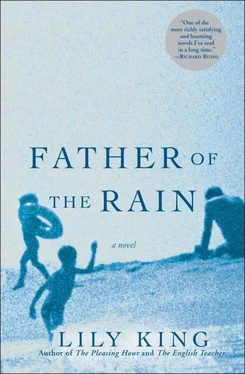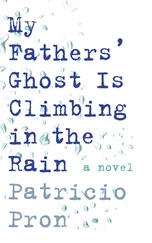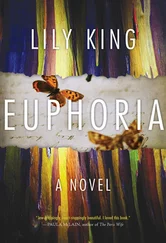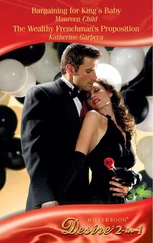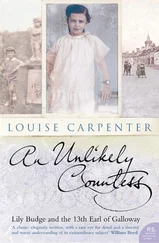“If you do that—” he struggles to sit up and point a finger at me—”if you do that, if you go anywhere near her, I’ll call the police. You can get out of this house right now if that’s what your plan is. I want nothing, nothing to do with that woman, do you understand that?” His eyes are small and yellow.
“Yes,” I say thinly. The walls of my stomach begin to buckle. I feel myself rise, put back the chair, lift his plate, and move quickly out of the room and down to the kitchen. Over my shoulder, as smoothly as I can, I tell him to have a nap.
It’s been years since I’ve triggered my father’s temper. I learned my way around it long ago. I do not bring up politics, history, literature, lawyers — especially Jewish lawyers — or any other subject that can be linked, however loosely, to my mother. I do not tease, and I receive teasing with a smile; I keep my thoughts and opinions to a bare minimum. I ask questions. I make myself useful. I do not discuss my interests, my relationships, or my goals. He and Catherine find me dull company, and tease me for that as well, but it is a small price to pay for peace.
It never occurred to me that he wouldn’t want Catherine back. He’d wanted my mother back, or at least I thought he had. I have no Plan B.
I pick up the phone, the old one that’s always been there, with the long cord and rotary dial. Jonathan answers before the second ring.
“It’s just me.”
“Hey, just you.” His voice jiggles; he’s flopped on the bed and smashed a pillow beneath his head. He’s settling in for a long conversation. Suddenly I don’t have that in me. “So how is he?”
“He’s okay.” It feels like too much to explain: Garvey, the hospital, the loss of Plan A. “I miss you. I want to be on Paloma Street with you.”
“Nine and a half days. Here. I was just thinking of you. Listen to this. I’ve been reading Go Tell It on the Mountain again.” There’s a muffled scraping sound. “Okay, here it is.”
It’s a long quote and I try to concentrate, but the words just bounce off me.
“I like that,” I say when he’s done, but I don’t have anything more to say about it. “There are these plates here. I remember coming back from my grandparents’ that summer and seeing them in my kitchen: Catherine’s good china. The kids ate off of plastic, but Dad and Catherine always used these plates. She didn’t take them with her. She doesn’t seem to have taken much of anything. That’s probably a good sign, right?”
“You want her to come back?”
“It’s my father’s only hope, I think. He can’t cope alone.”
“How about some sort of housekeeper?”
“He doesn’t like people he doesn’t know.”
“Did you really come from the loins of this man?”
“Please don’t put it that way. How was class today?”
“Two more to go.”
“They’ll hand in their papers next week?” Once he got those papers and graded them, he could leave.
“Wednesday morning. You know, this Baldwin book probably means more to me than anything I’ve read in any philosophy class. Narrative is the way to communicate ideas. Philosophy just tastes bad to most people unless you wrap it up in a good story.” It’s weird to hear his voice and the words Baldwin and philosophy and narrative coming through the same phone line we used to use for prank calls. Is John Wall there? Are any Walls there? Then what’s holding up your house?
“I don’t know,” I say.
“You okay, Dales?”
“I should probably go check on him.”
“You sure?”
I wish I hadn’t called so soon. It’s never a good idea to try and mix the world of my father with any other world. I’d learned that over and over. “I’ll call you when I get on the road again.”
“I love you,” he says. It sounds dutiful. But I know that’s the Doppler effect of being here in this house.
The minute I hang up I want to call back.
“Who was that?”
I flinch. He can really creep up on you when he wants to. “A friend of mine. She’s moving to California, too.” The impulse to lie is instinctive, like one of those desert cats hastily burying its kill in the sand.
He’s changed into bright red pants. His hair is damp, combed neatly in ridges. “When do you have to go?”
“The day after tomorrow. I have a professorship at Berkeley that starts in ten days.” I don’t know if Garvey mentioned this to him.
He moves past me to the door where the dogs are scraping to be let out. They move in a runnel of fur through the opening he makes. He stays looking out the screen door. The little dog remains beside him. He nudges her with the toe of his topsider. “Well, we don’t have a professorship, do we, Maybelle?”
He moves with sudden purpose to the bar. It’s not yet 2 P.M. I’ve never tried to control my father’s drinking, never suggested that he not have a drink when he wanted one. It would be like trying to separate a snake from a mouse.
It’s all done with such precision: the ice into the monogrammed glass, the snap of the paper across the cap of a new bottle of Smirnoff’s, the splash of vermouth, the tiny onions jiggled out so carefully. Then the pause, and then the sip, his eyes pulled shut by pleasure. I’ve never noticed what an act of love it all is.
Alcohol has never done anything for me. The first time I got drunk was with Mallory in eighth grade. My mother and Paul were out, and we mixed Grand Marnier with Hawaiian Punch. Mallory got giggly and I got sick. When my mother came home I was still bent over the toilet. She seemed more relieved than angry. “I think you’re like me, honey,” she said, rubbing my back. “You’ll never be able to hold your liquor.” She was right.
The afternoon, the evening, the night spreads out before us. Outside the sky is wide and blue; the sun beats on the grass, on the fur of the dogs on the back porch. Inside is cool and dark.
“Backgammon?” I say, slightly desperate.
“Sure.”
We go into the den, to the cabinet where the games are kept. A hot cedar smell spills out. Backgammon is on the bottom, the fake leather case stuck to the wood. I have to give it a good tug. He takes his seat on the sofa and places his drink on the end table, a fluid gesture I have seen a million times. I pull around an armchair to face him, the game between us on the coffee table. The pieces are heavy, marbleized. The dice thud in their felt-lined cups. I haven’t played a game with him since I was a very little girl.
We set up. There is no confusion about which side is home, my left, his right. He does not say, as Jonathan always does before any kind of game, I am going to whup you silly , just to up the tension. But I can tell by his breathing and the careful straight rows he makes that he is thinking about winning. I never think about winning at the beginning of a game. At the start I am always just thinking how happy I am to be playing a game, what a particular old pleasure it is, what a wonderful detour from regular life, regular conversation. My desire to win comes later, when I recognize that my delight has not put me in the lead. Then I become focused and anxious. If I lose, it feels like more than losing a game, and if I win, the elation is momentary — the other person’s discouragement makes my own enjoyment impossible.
My first roll is a six and a five, lovers’ leap. He tries to blockade my remaining man, but he doesn’t get the rolls. I hit him several times on my way out. Soon I have trapped four of his men in my home.
When I win, he moans, falsetto, but he isn’t angry. He’s barely taken a sip from his drink. We set up the board again.
The dice are with me again. I double him after my third roll and he accepts.
Читать дальше
